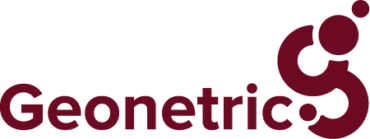Negative keywords and location exclusions in Google Ads can ensure your pay-per-click (PPC) budget is spent on the right audience, in the right place.
So, you’ve mastered your keyword research and compiled comprehensive keywords for your Google Ads campaign. However, how much time have you devoted to gathering negative keywords to add to your campaign? Negative keywords can be just as important as your search keywords in your PPC campaign and can save you from wasting money on keywords that aren’t relevant to your campaign or organization.
What Are Negative Keywords?
Negative keywords tell Google what search queries are not relevant to you and prevent your ads from showing up in those searches.
Let’s say you’re running a campaign to promote the emergency department at your hospital. It stands to reason that users might search for “ER” or “emergency hospital” when in need of an emergency department near them. What happens, though, if a user searches for “animal emergency hospital”? If you haven’t added “animal” as a negative keyword, your ad has the potential to show up in Google. This means at best you’re getting an impression without the possibility of a click, which impacts your click-through-rate (CTR) and ultimately your quality score. And it means at worst you’re paying for a click that isn’t relevant to your campaign or organization and most likely will result in a bounce.
By adding “animal” and other related keywords to a negative keyword list, you’re saving money on wasted impressions/clicks and focusing your budget on the keywords that really matter and are much more likely to convert. This means your ads will only show up for the people that are actively searching for your service or location.
Adding Negative Keywords to Your Google Ads Campaign
So, where do you even start? In order to find negative keywords, be sure to look at the Search Terms Report in Google Ads to see actual search queries that have triggered your ads.
Utilizing Google’s ad preview tool to search for your primary keywords is another way to discover even more negative keywords, without impacting your own quality score or ad spend. Anything that shows up on the first few pages is information that Google considers relevant to your search. So if you’re seeing terms that aren’t relevant or valuable to you, add those to your negative keyword list.
You can add negative keywords at the campaign or ad group level. For instance, if you’re running a “cancer” campaign, you might have an ad group for “lung cancer,” “breast cancer,” and “prostate cancer”. You don’t necessarily want your lung cancer ads showing up for a query related to breast cancer, so adding “lung” as a negative keyword to your breast cancer ad group would be a good idea. Similarly, you don’t want “dog cancer treatment” triggering any of your ads, so you’d want to add “dog” as a negative keyword at the campaign level.
Excluding Locations from Your Campaign
Taking it one step further, you can also exclude locations for your ads to ensure they’re showing up only in the geographic locations that matter to you.
Like negative keywords, location exclusion allows you to use your budget wisely by preventing your ad from showing to users who most likely wouldn’t have access to your location or service.
Even though you’re only targeting specific areas, people might not be searching FOR your area. Someone in your geographic target might be looking for a service in another city which is not relevant to your campaign. For example, a local hospital in Cedar Rapids wasn’t targeting Iowa City, a city about 30 miles away, but was still seeing a lot of queries that included Iowa City. Location targeting alone wasn’t enough to avoid those irrelevant queries, so adding that city (and others) to excluded locations and negative keywords made the difference.
Now you can take a look at your Google Ads campaign and better tailor it to the right audience. By adding negative keywords and excluding locations from your campaign or ad groups, you’ll soon begin to see that your money is being spent effectively to convert valuable users.
Learn more tips and tricks for the making the most out of your next Google Ads campaign by watching our webinar Outperform Your Competition with Google Ads.


